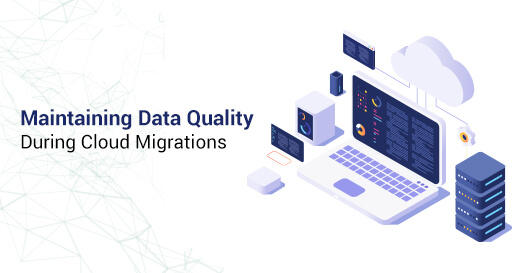Data Governance in Retail—Data Challenges and Solutions
Written by Imran Abdul Rauf
Technical Content WriterFrom data quality and lineage to siloed and duplication issues, retail businesses find it hard to identify, map, and correlate all their data assets to respective customers. Hence, it hurts their marketing and sales and provides inaccurate data insights, damaging customer trust. This requires retail businesses to overcome data governance and security issues to improve their user experience.
Data Governance Challenges for Retailers
| Data is everywhere | Solution |
|---|---|
Retail companies gather and manage data from multiple sources and touchpoints. For example, retailers keep one set of customer data in the sales pipeline and another in the billing or marketing database. This scattered data in different assets leads to poor customer experiences. Therefore, data governance programs should be competent enough to link the customer data and regularly update it across multiple systems and platforms holistically. |
Through machine learning and correlation techniques, retailers need to connect their business-critical and regulated customer data spread throughout their siloed and individual systems. The techniques cater structured and unstructured data across all the sources and correlate all the data points to a single authorized person. Businesses can connect all the relevant information across websites, apps, and even brick-and-mortar businesses. This provides a consistent and reasonable customer experience and encourage point-in-time marketing campaigns. |
| Data duplication and redundancy | Solution |
|---|---|
Data governance teams must identify ways and relationships that catch the data duplication and redundancy issues. By understanding the relationships between similar data, you need to accelerate visibility, extract insights, and connect it to an informed individual. Once the retailer is aware of the whereabouts of redundancies, they should prioritize high-risk data and approve data minimization workflows. |
Try to identify redundant data and duplication instances through ML-based classification and correlation techniques. Large retail businesses whose data comes from multiple sources often face the challenge of enabling pattern-based identification. Data governance teams can use cluster analysis to locate duplicate data assets and ensure consistent retention and consolidation are practiced. |
| Unreliable data | Solution |
|---|---|
Retailers need to know how reliable their customer data is and acquire a scalable, automated data quality solution to manage unreliable data. It is common for retail businesses to decide based on unreliable data with no idea regarding its consistency, authenticity, validity, and completeness. |
Retailers should acquire data governance services that ensure the completeness, validity, consistency, and quality of their data all in one place. Businesses will use reliable, quality data and extract valuable customer insights; this enables them to produce data quality scoring and ML-based suggestions. |
| A complex regulatory requirement | Solution |
|---|---|
The data protection and privacy landscape are increasingly getting crowded and challenging to transit. The current rules and guidelines from the US and global industry require retail businesses to protect customer data. Different regulations related to retail businesses have some discussions in common and some differences in compliance. For example, retailers should acquire the ability to map their data for risk awareness and privacy. |
A comprehensive data inventory allows retail businesses to understand where is their entire data throughout the enterprise. The data inventory assesses the sources of the information gathered, how the data is used across the enterprise, and the types of data assets shared with 3rd parties. By achieving compliance across regulations, retailers obtain complete visibility and categorize, correlate, and map all types of business-critical data. This permits the retail companies to sort their data through policies and also be able to manage risks associated. |
| Siloed data | Solution |
|---|---|
While retailers gather their customers’ data, corporate premises typically manage the marketing efforts like sending emails, promotional offers, etc. As the entire data isn’t present at a single location, it is challenging for businesses to comprehend and monitor where the data is coming from, i.e., from the site, brand, or 3rd party. Also, it isn't easy to connect the data for reporting, analysis, and quality improvement purposes. |
Businesses are required to understand where is their entire data and where it is coming from, so they can trace back and make the necessary fixes. ML-driven data catalogs help discover all the data spread across the enterprise and IT infrastructure, including technical, business, and operational metadata. Locate structured and unstructured data residing in the cloud on on-prem databases. It's either actively used or at rest, and teams should fix hidden and siloed data challenges. |
Acquiring a Single Source of Data Truth
Retail businesses can leverage the services of a professional data governance service provider that can collect and curate all their information into a single infrastructure, irrespective of their source. In doing so, retailers can:
- Improve their evaluation and comprehension of customer base
- Produce and use new customer insights
- Connect all activities to a single customer
- Use point-in-time marketing activities, focus on priority customers for premium services, and provide promotional offers for repeat customers
- Provide optimum satisfaction to their customers
Royal Cyber is a digital transformation enterprise offering data governance solutions for clients seeking to protect their data, workflow management, and practice data quality management.



